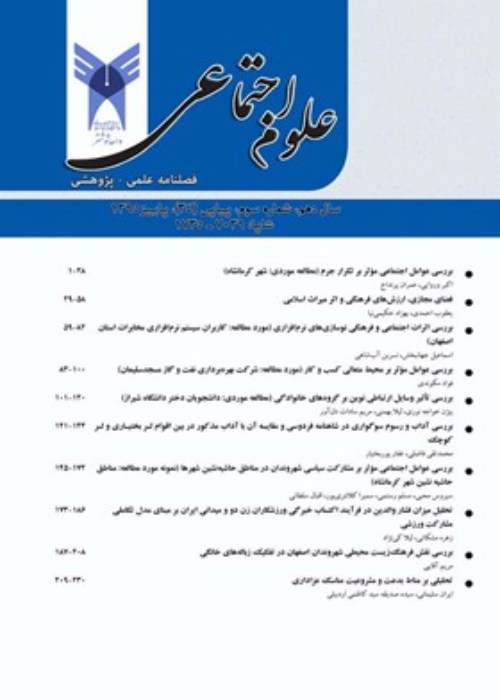Study the Context and Barriers to the Formation of Good Governance in Contemporary Iran
Good governance is a new pattern in the development literature that is shaped by the interaction of the three private sectors, civil society and the state. In fact, sustainable civil society and the civilian government are the key to achieving sustainable development and good governance. The main purpose of this study is "studying the role of political parties in the formation of good governance in Iran." The study was conducted in the form of a study and an interview with the political experts and political activists of the university, using a theoretical and purposeful sampling and using the method of fundamental theory. The reliability and validity of the research as a confirmatory or confirmatory capability in the form of avoiding a researcher's bias, reliability or reliability, and the confidence of the interviewees in extracted data and reliability in the form of data transfer with the interviewees, in consultation with the experts Came out. The research data obtained in the process of exploiting the fundamental theory method show that "the totalitarianism of the political system, political culture, and the awareness of political parties as a result of interacting conditions have been a consequence. Based on the findings of this study, the main problem and obstacle is the achievement of good governance in Iran, created by political systems. Political systems, both before and after the revolution, have always threatened the distribution of power and limited the freedom of action of parties and civil society organizations. Going to sustainable development and respecting the rights of citizens and orthodontics is a fundamental basis for achieving good governance in Iran.Key words: good governance, political parties, civil society, political culture, modern state.


